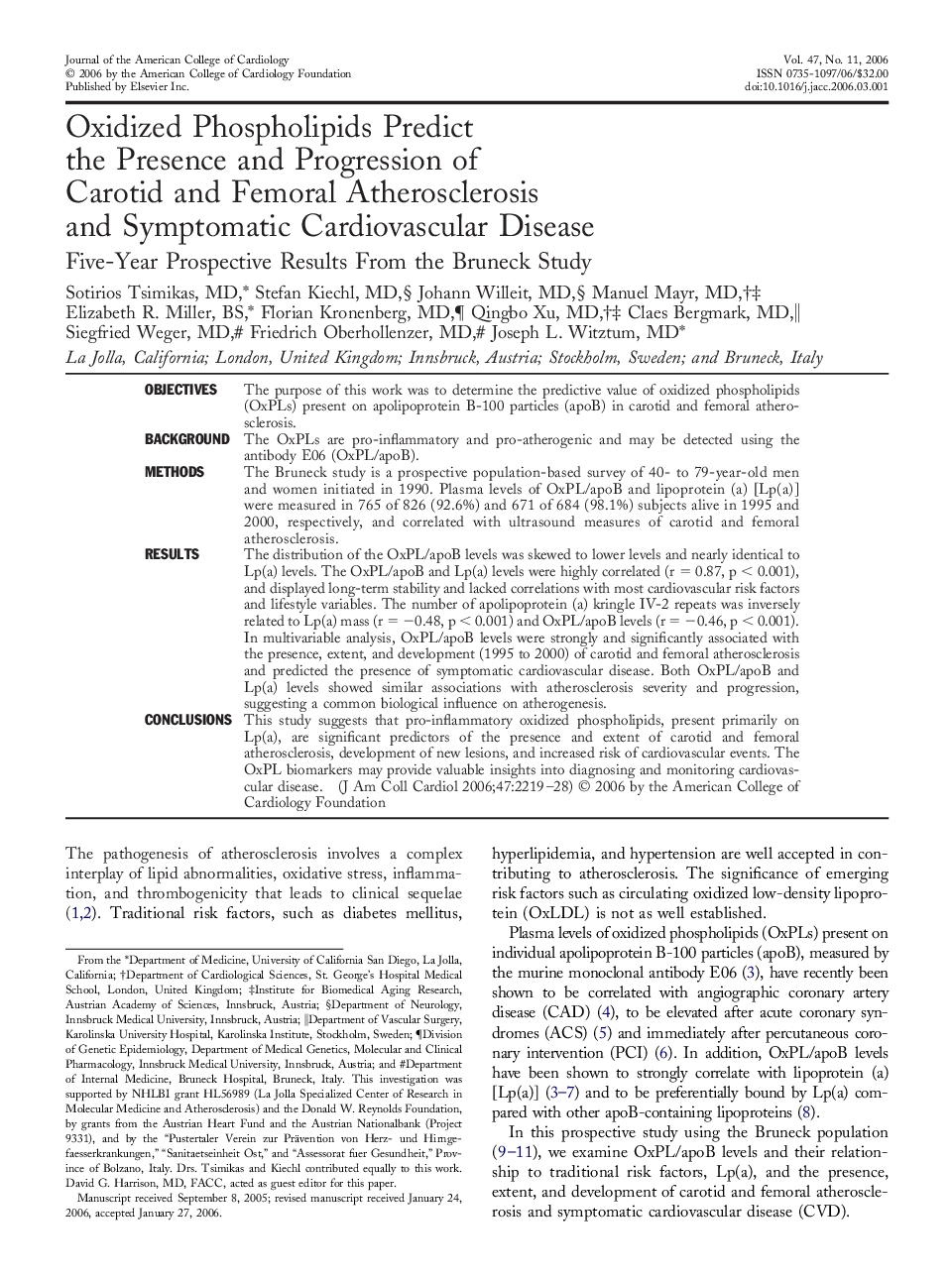| کد مقاله | کد نشریه | سال انتشار | مقاله انگلیسی | نسخه تمام متن |
|---|---|---|---|---|
| 2954159 | 1577510 | 2006 | 10 صفحه PDF | دانلود رایگان |

ObjectivesThe purpose of this work was to determine the predictive value of oxidized phospholipids (OxPLs) present on apolipoprotein B-100 particles (apoB) in carotid and femoral atherosclerosis.BackgroundThe OxPLs are pro-inflammatory and pro-atherogenic and may be detected using the antibody E06 (OxPL/apoB).MethodsThe Bruneck study is a prospective population-based survey of 40- to 79-year-old men and women initiated in 1990. Plasma levels of OxPL/apoB and lipoprotein (a) [Lp(a)] were measured in 765 of 826 (92.6%) and 671 of 684 (98.1%) subjects alive in 1995 and 2000, respectively, and correlated with ultrasound measures of carotid and femoral atherosclerosis.ResultsThe distribution of the OxPL/apoB levels was skewed to lower levels and nearly identical to Lp(a) levels. The OxPL/apoB and Lp(a) levels were highly correlated (r = 0.87, p < 0.001), and displayed long-term stability and lacked correlations with most cardiovascular risk factors and lifestyle variables. The number of apolipoprotein (a) kringle IV-2 repeats was inversely related to Lp(a) mass (r = −0.48, p < 0.001) and OxPL/apoB levels (r = −0.46, p < 0.001). In multivariable analysis, OxPL/apoB levels were strongly and significantly associated with the presence, extent, and development (1995 to 2000) of carotid and femoral atherosclerosis and predicted the presence of symptomatic cardiovascular disease. Both OxPL/apoB and Lp(a) levels showed similar associations with atherosclerosis severity and progression, suggesting a common biological influence on atherogenesis.ConclusionsThis study suggests that pro-inflammatory oxidized phospholipids, present primarily on Lp(a), are significant predictors of the presence and extent of carotid and femoral atherosclerosis, development of new lesions, and increased risk of cardiovascular events. The OxPL biomarkers may provide valuable insights into diagnosing and monitoring cardiovascular disease.
Journal: Journal of the American College of Cardiology - Volume 47, Issue 11, 6 June 2006, Pages 2219–2228